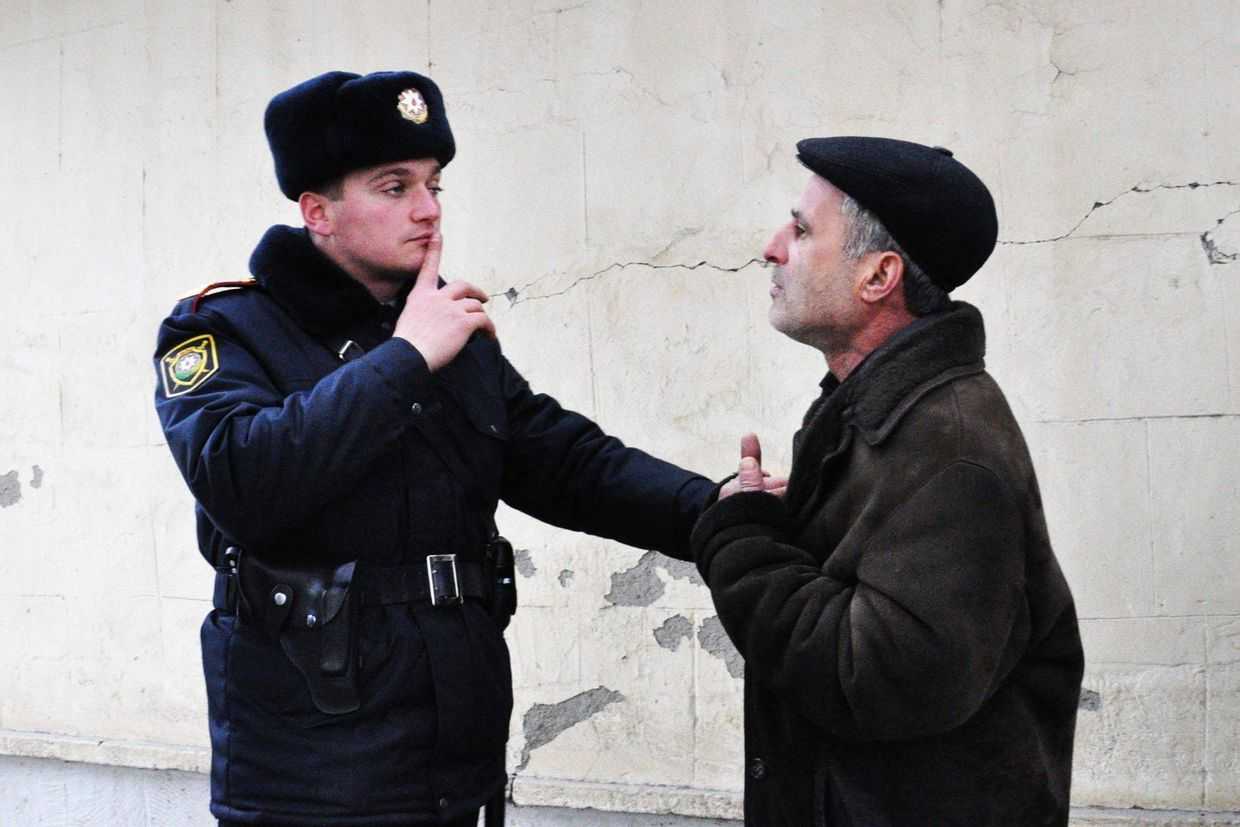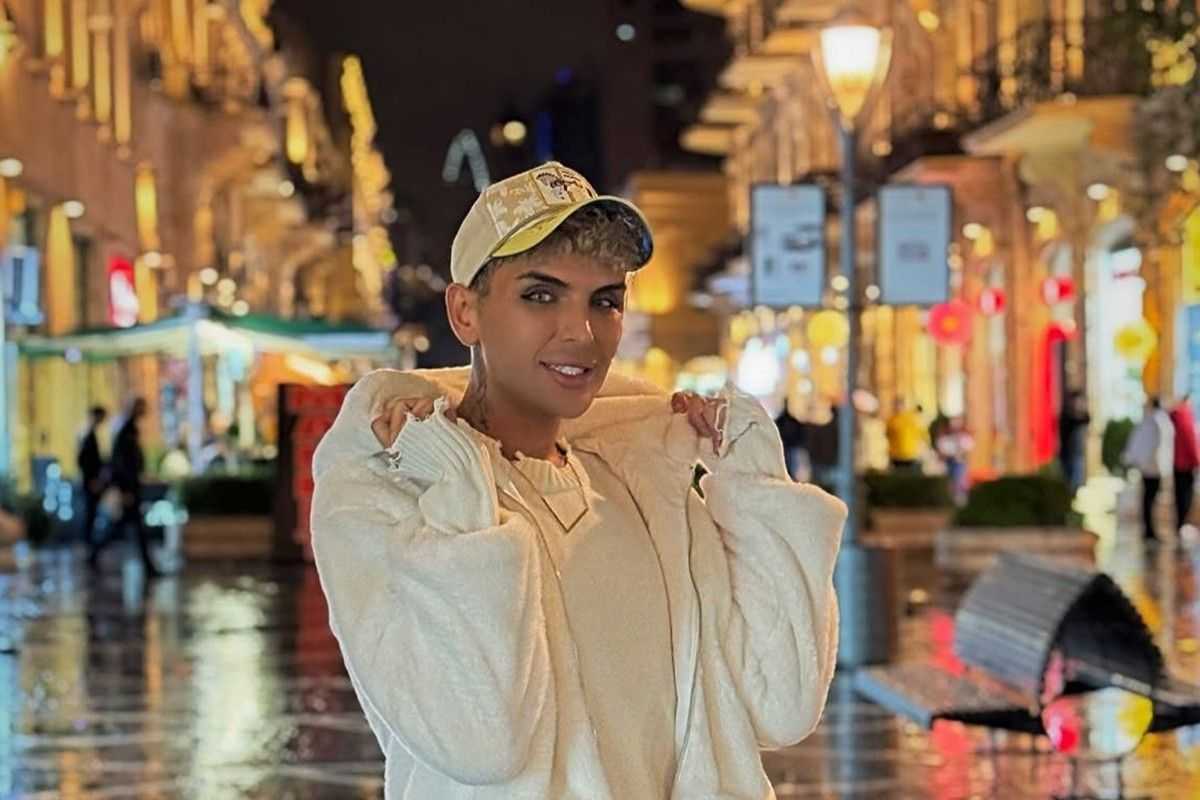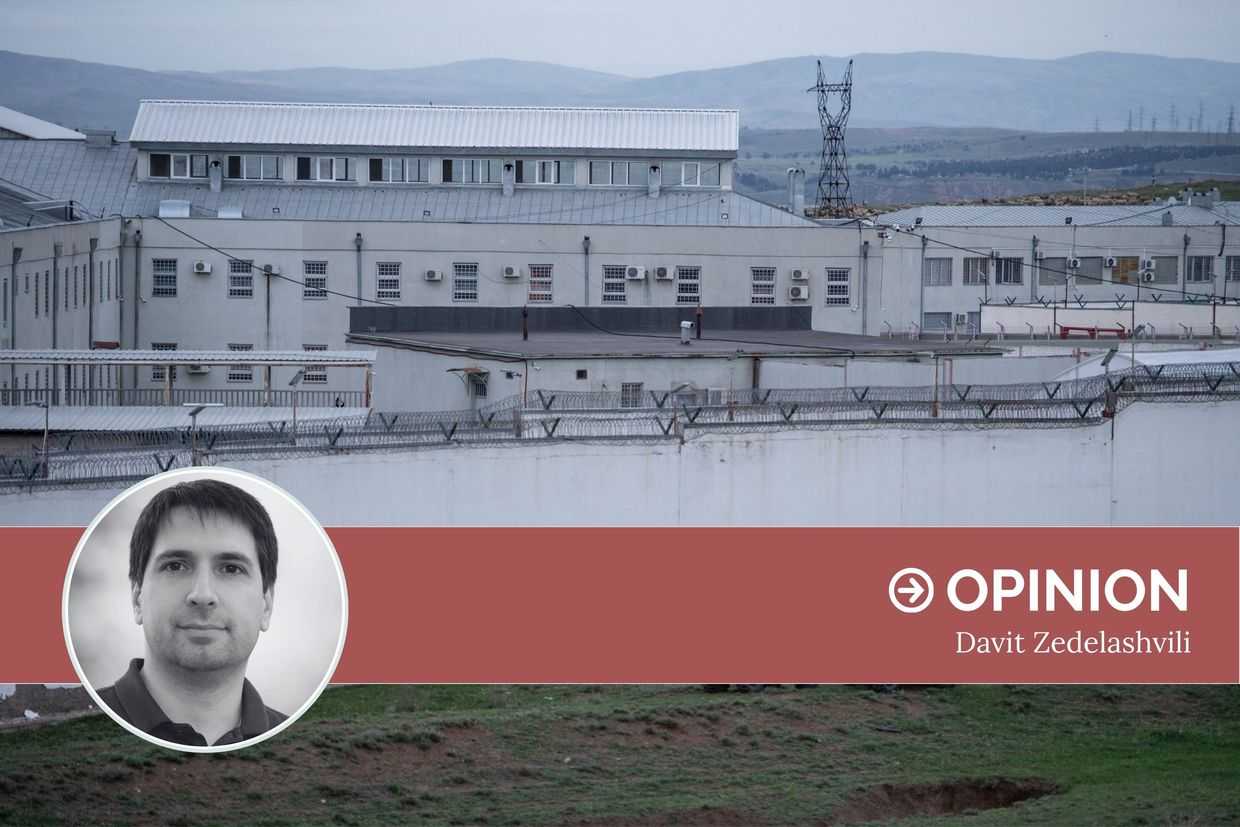
At least four government critics in Georgia have been attacked by unknown assailants in the streets or outside their homes, amidst an escalating campaign of violence and harassment against opponents of the country’s foreign agent bill.
On Wednesday evening, Dimitri Chikovani, a leading member of the opposition United National Movement (UNM) party, was attacked in the entrance of his building in Tbilisi. CCTV footage of the attack showed five assailants lying in wait before attacking and beating up Chikovani.
Chikovani remained defiant following the attack.
‘I want to tell my friends, the people who have been protesting the Russian law [the foreign agent bill] in the streets for three weeks now, that this regime is finished, they cannot scare us, they cannot make us kneel’, he told Formula. ‘This is the end of them.’
Activist Lasha Ghvinianidze, who has helped organise the frequent motorbike rallies during protests against the draft foreign agent law, was also attacked in the streets on Wednesday.
‘First, they started calling my phone yesterday, then my wife, then today they threatened my 72-year-old father on the phone’, Ghvinianidze told TV Pirveli. ‘And in the evening they carried out their threat’, he said.
On the same evening, Gia Japaridze, the brother of opposition leader Zurab Japaridze, was attacked at the entrance of his home.
‘They started beating me; many of them hit me with sticks’, Japaridze said following the attack. ‘They were asking, why am I against the Russian law’.
Japaridze is a former diplomat and a professor at the University of Georgia.
All three required medical attention, and Japaridze and Chikovani remained in hospital on Wednesday afternoon.
On Thursday, local media reported that another opposition politician from the UNM, Giorgi Mumladze, was beaten up in Marneuli, southern Georgia. Mumladze said he noticed a car watching him near his house before the attack.
‘I started taking a video, the car pulled up and four muscular, masked guys jumped out and started fighting me, ripped my clothes, grabbed my phone and took it away’, he said.
The violence comes amidst increasing attacks on opponents of Georgia’s draft foreign agent law.
In recent days, there have been widespread reports by opponents of the foreign agent bill, including activists, politicians, and demonstrators, of having received threatening phone calls from unknown people.
[Read more: Georgian Dream to create database of ‘undesirables’]
Several activists, journalists, and opposition politicians have also reported aggressive people knocking at the door of their houses as well as offensive graffiti and posters pasted on their homes.
Levan Tsutskiridze, the executive director of the Eastern European Centre for Multiparty Democracy, posted on X that ‘they put up these posters on the windows of our office in Tbilisi, saying we are “traitors”, “slaves of foreign money” and the like’.
They’ve put up these posters on the windows of our office in Tbilisi, saying we are “traitors,” “slaves of foreign money” and the like. We are not afraid, these posters will go, they will go, and we will prevail. #NotoRussianLaw pic.twitter.com/QkYLq9xc6T
— Levan Tsutskiridze (@LTsutskiridze) May 9, 2024
Speaking to journalists on Thursday, Interior Minister Vakhtang Gomelauri claimed the agency had opened an investigation into the attacks.
However, Justice Minister Rati Bregadze soon appeared to blame opponents of the foreign agent bill for carrying out the attacks on their own supporters.
‘If anyone can organise this kind of disturbance, it is certainly the people who stand at the front of these rallies, who want to [create a spark] of protest in the country’, he told journalists.
‘Whoever wants to galvanise the protests, it suits them to have as many injured people as possible. It is definitely not in the government’s interest to harm anyone or incite protests’, he said.
Wednesday and Thursday’s attacks were not the first against opponents of the foreign agent bill.
During a demonstration on 3 May, around 20 men ambushed and beat up an isolated group of protesters on Tbilisi’s central Heros Square. Despite the attackers’ faces being visible during the attacks and social media users claiming to have identified them, no arrests followed.
The attacks on government critics on Wednesday preceded a series of arrests of protesters.
On Thursday, the Interior Ministry charged six people with ‘damaging property’ and attacking police during the protests against the foreign agent bill.
They could face up to 11 years in prison if convicted.
Dozens of people have also been arrested and charged with administrative offences.
During last year’s protests against the foreign agent bill, two protesters faced criminal charges. Tornike Akopashvili, was fined ₾3,000 ($1,120) and given a two-year suspended sentence.
Lazare Grigoridis was sentenced to nine years in prison shortly before President Salome Zourabichvili pardoned him on 12 April.
[Read more: Georgian President to pardon foreign agent law protester Lazare Grigoriadis]
Georgia’s foreign agent law would label any civil society or media organisation that received at least 20% of its funding from outside Georgia ‘organisations carrying out the interests of a foreign power’. Such organisations would be subject to ‘monitoring’ by the Ministry of Justice every six months, which lawyers have warned could include forcing them to hand over internal communications and confidential sources. Organisations that do not comply would be subject to large fines.









